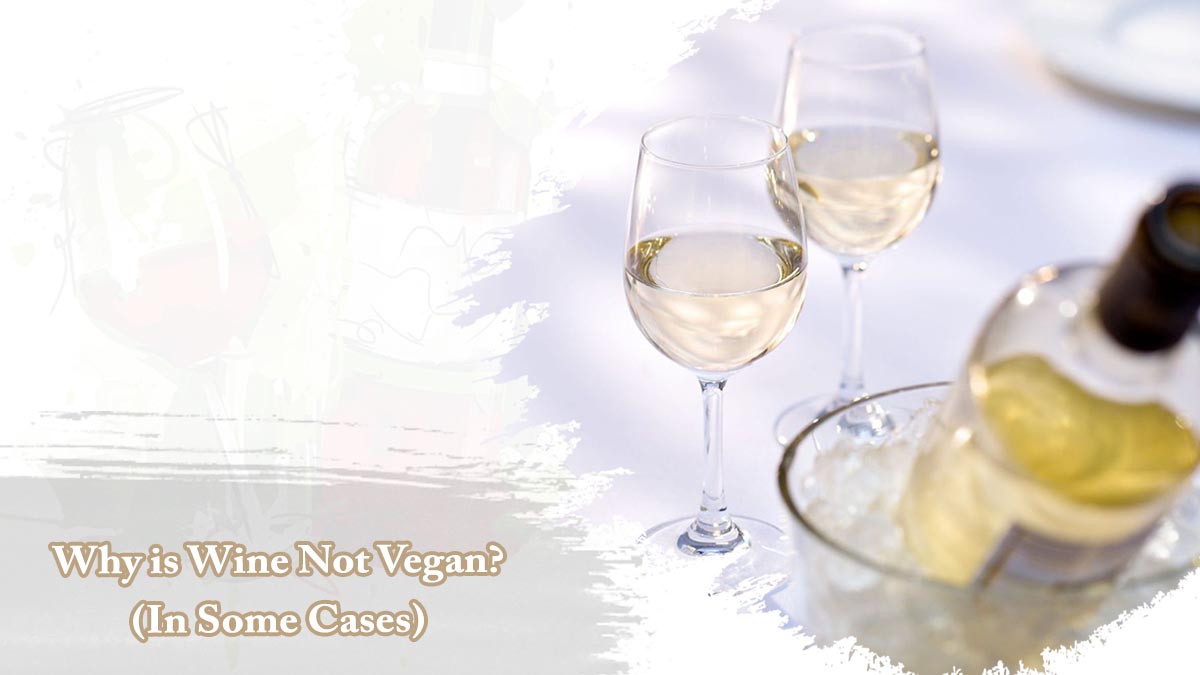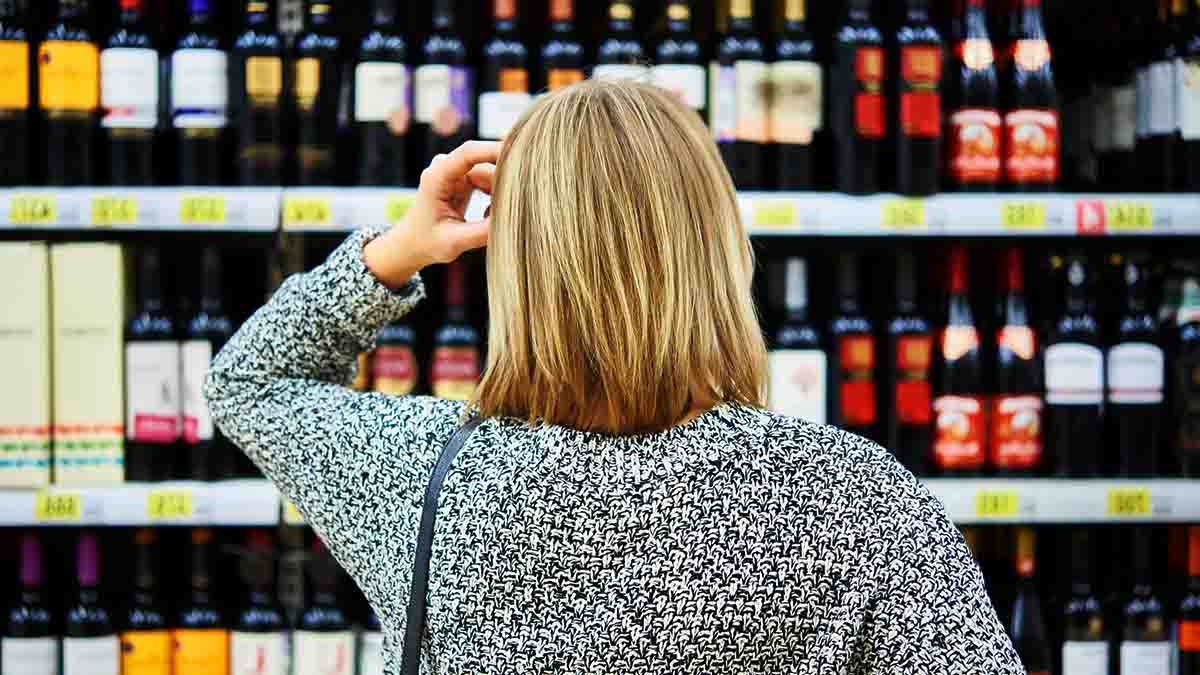Why is Wine Not Vegan?
Have you ever considered the environmental or ethical implications of enjoying a glass of wine? You may have seen labels on bottles indicating whether or not they are vegan-friendly, but if you’re like many people, understanding why isn’t always so clear. The practice of winemaking is often misunderstood and overlooked when it comes to dietary preferences. Understanding how wines become vegan (or non-vegan) can help consumers make conscious decisions with more information available to them.
In this blog post, we’ll dive into a few aspects of winemaking that affect its animal product status and explain why wine is not always vegan. Whether you’re simply curious about the behind-the-scenes process involved in producing your favorite tipple or seeking more variety in your drink choices, this post offers something for everyone!
What is Veganism?
Veganism is a dietary and lifestyle choice that involves abstaining from consuming animal products. This includes not only meat and fish, but also dairy, eggs, honey, and any other products derived from animals. It is often viewed as a more ethical and sustainable way of living, as it promotes compassion towards animals and reduces the negative impact that animal farming has on the environment.
Veganism has become increasingly popular in recent years, with more people adopting this lifestyle for a variety of reasons, including concerns over animal welfare, environmental sustainability, and health benefits.
In addition to its dietary component, veganism is also a philosophy that espouses a non-violent and compassionate approach to life. Many vegans extend this philosophy beyond their diet to other areas of their lives, such as clothing, entertainment, and cosmetics, by avoiding products that involve the use of animals in any way.
Overall, veganism is a lifestyle choice that seeks to be more conscious and intentional about one’s impact on the world, promoting compassion, sustainability, and health.
So, Why is Wine Not Vegan?
At first glance, wine may seem completely vegan because it’s only made from fermented grape juice, without any animal products. However, sometimes that is not the case.
Wine is not considered vegan in some cases because of the use of animal-derived products during the production process. So what ingredients make some wines non-vegan?
The Process of Wine Making and its Non-Vegan Ingredients
Many companies add fining agents like egg whites, fish bladders, and other non-vegan additives to the wine to remove any impurities. Fining agents are used to make the wine look clear and smooth. The chemicals in these additives bond with the suspended particles and then settle at the bottom of the container, making them easier to remove. Although this process doesn’t affect the taste of the wine, it can make it non-vegan.
Another non-vegan ingredient used in the wine-making process is honey. Some winemakers use honey as a fermentation aid, sugar source, or flavor enhancer. Honey is an animal by-product and not vegan, so it’s essential to confirm a wine’s ingredients before consuming it.
Gelatin is another non-vegan substance used for winemaking. It’s added to the wine to remove cloudiness, reduce bitterness, and increase clarity. After settling, the gelatin is removed from the wine, and any impurities stick to it. Gelatin is made from animal ligaments, bones, and skin, so it’s not vegan.
In conclusion, wine-making is a complicated process that can make it non-vegan. The most common non-vegan ingredients used in winemaking include honey, egg whites, fish bladders, and gelatin. While these ingredients are used for the clarification of the wine, it’s important to note that their use doesn’t affect the taste of the wine.
When deciding to consume wine as a vegan, one should check the label for these non-vegan ingredients, and if in doubt, it’s best to check with the winemaker.
Are There Any Vegan Fining Agents?
With the rise of veganism and ethical consumerism, there has been an increasing demand for fining agents that are free from animal products.
Thankfully, there are now several vegan-friendly fining agents available on the market. These include bentonite clay, which is a natural clay used to clarify wine and beer, and activated charcoal, which is a highly effective agent for removing impurities and off flavors. Other vegan fining agents include silica gel, isinglass derived from algae, and potassium caseinate derived from milk protein.
Interestingly, some winemakers are also using unconventional fining agents such as pea protein and potato protein, which are effective in removing unwanted particles from wine. In addition to being vegan-friendly, these fining agents are also environmentally sustainable and offer a new approach to wine and beer production that is in line with ethical consumer preferences.
In conclusion, there are multiple options available for vegans or anyone looking to avoid animal-derived fining agents. With the increasing demand for vegan-friendly products, more innovative and sustainable fining agents will likely be developed in the future.
Tips on Finding Vegan Wines
Veganism is an ever-growing trend in the food and beverage industry. As more people shift towards plant-based diets, the demand for vegan products, including wine, is on the rise.
Vegan wine is a wine that is made without using any animal-derived products like egg whites, gelatin, or isinglass. However, it can be challenging to know which wines are vegan-friendly, especially if it’s not labeled clearly. Hence, we’ll provide you with some tips on finding vegan wines.
1. Read Labels Carefully
One of the most important things you need to do when shopping for vegan wine is to read labels carefully. Look for wines that are clearly labeled as vegan, organic, or biodynamic. Most companies that make vegan wines will have a vegan certification logo on their bottles.
If you can’t find any labeling on the bottle, you can always check the winemakers’ website or contact them directly through email or social media. If you’re dining out, don’t be afraid to ask your server or sommelier about the vegan options available.
2. Avoid Filtration Additives
Filtration is a common process used in winemaking to clarify the wine. However, some filtration agents, like isinglass, gelatin, and egg whites, are derived from animals. When shopping for vegan wine, avoid wines that have been filtered using these products.
One alternative to traditional filtration methods is to use bentonite clay, a natural mineral that’s vegan-friendly. Wines filtered with bentonite clay appear cloudy but are still drinkable.
Drinking vegan wine is a great way to support a diet and lifestyle that emphasizes animal welfare and sustainability. While it may require some research and label reading, finding vegan wines has become easier with the rise in veganism. By following the tips we’ve provided, you’ll be able to find quality vegan wines that match your taste preferences.
FAQs
Is wine vegan?
It depends on. Wine is generally not considered vegan because of the use of animal-based products in the fining process. Fining is a method used to make wine clearer and smoother by removing proteins, phenols, and other organic molecules that cause turbidity in the drink. Common animal-based products used for fining wine include casein (a milk protein), albumin (egg whites), gelatin (animal protein obtained from boiling skins, tendons, and ligaments), chitosan (fungus derived from shellfish), and isinglass (derived from fish bladders).
When these animal products are added to the wine, they bind with particles to form larger ones which can then be filtered out. Although the majority of the fining agents are removed during filtering, small traces may remain in the final product.
These days, many winemakers are turning to vegan-friendly fining agents to adhere to a plant-based lifestyle – such as bentonite clay, limestone, kaolin clay, activated carbon, and silica gel. The good news is that more and more wineries are beginning to make vegan wines by using only these vegan-friendly fining agents. If you’re unsure whether or not your favorite bottle of wine contains any animal products, it’s always best to check with the winery itself or look for certified vegan labels on bottles.
How can I make sure the wines I drink are vegan?
Wine is a complex drink that can be made from various grapes, but it can also contain non-vegan ingredients. Many wines are not vegan because they use animal-derived products during the winemaking process. These include gelatin (which is commonly derived from cow or fish bones), casein (a milk protein), egg whites, and even fish-based fining agents such as isinglass, which is derived from sturgeon bladders. It’s these components that make it difficult to ensure the wine you are drinking is truly vegan.
To make sure your wine is vegan, look for wines labeled explicitly as vegan on the bottle or specifically stating no animal products have been used in its production. You will need to read labels carefully and contact manufacturers if there are any questions about production processes. Fortunately, more and more wineries are making the effort to create vegan-friendly wines and provide clear labeling of their vegan status. Additionally, online retailers like Vegan Wines offer exclusively vegan selections of organic wines that are harvested sustainably from small producers around the world.
Does organic or biodynamic wine guarantee it is vegan-friendly?
Organic and biodynamic wines do not necessarily guarantee that they are vegan-friendly. While organic and biodynamic winemaking means no synthetic chemicals are used in the process, some winemakers still use animal products during their production. These include isinglass (fish bladders), gelatin (animal protein), egg whites, and casein (milk protein). All of these are used to filter out unwanted particles to create a clearer wine. Due to this, many organic and biodynamic wines may not be suitable for strict vegans or vegetarians.
When looking for wines that are vegan-friendly, it is important to look for certification from organizations such as The Vegan Society or Animal Equality. Additionally, many wineries now list ingredients on their labels and websites so that consumers can be sure about what is in the bottle before purchasing it. Some wineries also offer “vegan-friendly” versions of their wines which have been processed using vegan methods such as clay filtration or reverse osmosis instead of animal proteins.
Overall, while organic and biodynamic wines may be more eco-friendly than traditional ones due to fewer chemicals used in the production process, this does not automatically guarantee that they are free from animal products or suitable for vegans and vegetarians. Therefore, it is important to look beyond certification labels and check the ingredients before purchasing any wine if you are following a plant-based lifestyle.
Can vegans eat foods cooked with wine, such as sauces and marinades?
The answer to this question depends on what type of wine is used. Many wines are not vegan due to the animal products used in their production. These products include some types of fining agents, as well as the use of animal-derived enzymes, gelatin, and isinglass. Fining agents such as bentonite clay, egg whites, and casein (a milk protein) can be used to filter out certain particles from the wine. Gelatin and isinglass are also derived from fish and other marine animals, which makes them unsuitable for vegans.
However, there are many vegan-friendly wines available that do not contain any animal-derived ingredients. Organic wines are more likely to be vegan since they do not contain synthetic fining agents or additives that could potentially contain animal products. If you’re unsure about a particular wine’s ingredients or production methods, it’s a good idea to contact the producer for details before consuming it or using it in cooking.
When searching for vegan sauces and marinades made with wine, look for labels that explicitly state “suitable for vegans” or similar language. Alternatively, you can simply opt for recipes that use plant-based alternatives such as vegetable broth instead of wine or alcohol-based ingredients altogether.
Is beer also not vegan-friendly?
Many beers are not vegan-friendly because they are processed with animal products such as isinglass, a fish bladder, or gelatin which can be derived from the skin, bones, and connective tissue of animals. Additionally, some beer companies may use animal products to filter and stabilize their beer.
Furthermore, non-vegan ingredients such as honey and lactose can be used to enhance the flavor of the beer. While some craft-brewed beers may make efforts to avoid using any animal-derived ingredients, typically these beers are not mass-produced and therefore may be difficult to find in certain markets. Ultimately it is up to the individual consumer to make an informed decision when it comes to choosing a vegan-friendly beer.
Do all wines contain animal products?
No, not all wines contain animal products. There are a variety of vegan and organic wines available that do not use any animal-derived ingredients in the production process. Generally, these wines do not use fining agents like gelatin, albumin, isinglass, or casein to clarify or filter the wine. Instead, they may employ methods such as bentonite clay or carbon filters.
Additionally, some winemakers also choose to bottle their wines without stabilizing or filtering processes that employ animal-derived products. Many producers proudly label their vegan wines so that consumers can make informed choices when selecting a wine for purchase.
Why honey is not vegan?
Honey is not considered vegan because it is an animal-derived product. Bees produce honey from the nectar of flowers, and while they are not harmed in the process, harvesting their honey does involve taking away what is essentially their food source. Additionally, bees can be reared for honey production by beekeepers, which involves practices such as the artificial insemination of queens and forced swarming that are seen as cruel to many vegans. Furthermore, beekeepers may use antibiotics and other unnatural methods to artificially increase the amount of honey produced by a hive. For all these reasons, honey cannot be included in a vegan diet.
Can vegans drink vodka?
The answer is yes, vegans can drink vodka! Vodka is made with grains or potatoes, both of which are vegan-friendly sources. However, it’s important to double-check the ingredients list on any vodka you purchase as some brands may add non-vegan ingredients for flavorings and colorings. Additionally, depending on the type of vodka you purchase (e.g., flavored or infused vodkas), it may also contain animal products in sweeteners or flavorings used to enhance the taste.
When purchasing vodka, look for a certified vegan label from an accredited organization such as Vegan Action or The Vegan Society. Additionally, always read the ingredient list thoroughly and ask questions if anything looks suspicious. You can also look for brands that list their production methods on the label to ensure they don’t use animal products in the distilling process.
So, yes—vegans can drink vodka and still adhere to a cruelty-free lifestyle. But always double-check the ingredients before consuming any alcoholic beverage. Doing so will help you make sure your drinks are truly vegan!
Conclusion
In conclusion, there are a variety of factors that make the relationship between wine and veganism a complicated one. Non-vegan ingredients such as isinglass, gelatin, egg whites, chitin, and casein are often used in winemaking to clarify and process the juice before it becomes wine. Additionally, there can be animal-based fining agents added during fermentation. For those reasons, we must accurately label all ingredients on our wines to keep all customers—from vegans to everyone else—happy and well-informed about what they’re drinking.
Thanks to readers for joining me on this journey of learning why wine is not always vegan! Hopefully, you have come away with a more detailed understanding of the complexities involved in determining if wine can or cannot be considered vegan or vegetarian.
Remember: always read the labels carefully so that you make conscious decisions when selecting your wines. Until then, happy tasting! Visit our Website for more interesting posts and guides.

I am Thomas Delange, CEO of McMahon’s Public House bar. I have a passion for restaurants and cooking & wines, and I love to spend my free time experimenting in the kitchen. I’ve worked hard to make McMahon’s one of the most successful bars in the city. When I’m not working, I enjoy spending time with my friends and family.



